The BEST episodes of TED Talks season 2014
Every episode of TED Talks season 2014, ranked from best to worst by thousands of votes from fans of the show. The best episodes of TED Talks season 2014!
TED is a nonprofit devoted to Ideas Worth Spreading. It started out (in 1984) as a conference bringing together people from three worlds: Technology, Entertainment, Design. TEDTalks began as a simple attempt to share what happens at TED with the world. Under the moniker "ideas worth spreading," talks were released online. They rapidly attracted a global audience in the millions. Indeed, the reaction was so enthusiastic that the entire TED website has been reengineered around TEDTalks, with the goal of giving everyone on-demand access to the world's most inspiring voices. [TED-Ed and TEDx are separate TVDB series and should NOT be listed here. Episode ordering and dates are sourced from YouTube.]
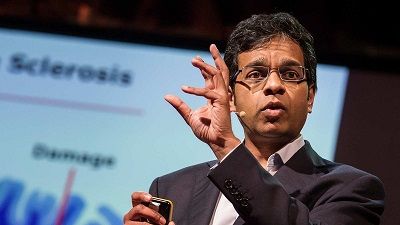
#1 - Siddharthan Chandran: Can the damaged brain repair itself?
Season 2014 - Episode 36 - Aired 2/24/2014
After a traumatic brain injury, it sometimes happens that the brain can repair itself, building new brain cells to replace damaged ones. But the repair doesn't happen quickly enough to allow recovery from degenerative conditions like motor neuron disease (also known as Lou Gehrig's disease or ALS). Siddharthan Chandran walks through some new techniques using special stem cells that could allow the damaged brain to rebuild faster.
Watch Now:Amazon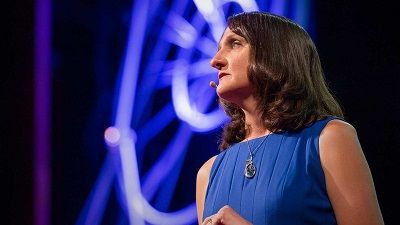
#2 - Sandra Aamodt: Why dieting doesn't usually work
Season 2014 - Episode 5 - Aired 1/8/2014
In the US, 80% of girls have been on a diet by the time they're 10 years old. In this honest, raw talk, neuroscientist Sandra Aamodt uses her personal story to frame an important lesson about how our brains manage our bodies, as she explores the science behind why dieting not only doesn't work, but is likely to do more harm than good. She suggests ideas for how to live a less diet-obsessed life, intuitively.
Watch Now:Amazon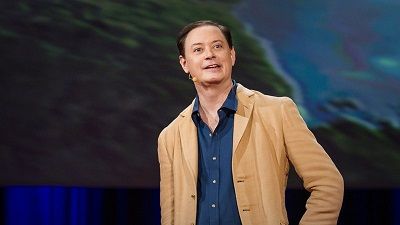
#3 - Andrew Solomon: How the worst moments in our lives make us who we are
Season 2014 - Episode 101 - Aired 5/21/2014
Writer Andrew Solomon has spent his career telling stories of the hardships of others. Now he turns inward, bringing us into a childhood of adversity, while also spinning tales of the courageous people he's met in the years since. In a moving, heartfelt and at times downright funny talk, Solomon gives a powerful call to action to forge meaning from our biggest struggles.
Watch Now:Amazon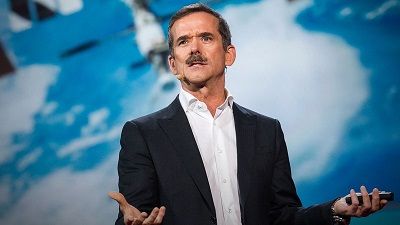
#4 - Chris Hadfield: What I learned from going blind in space
Season 2014 - Episode 54 - Aired 3/19/2014
There's an astronaut saying: In space, “there is no problem so bad that you can’t make it worse.” So how do you deal with the complexity, the sheer pressure, of dealing with dangerous and scary situations? Retired colonel Chris Hadfield paints a vivid portrait of how to be prepared for the worst in space (and life) — and it starts with walking into a spider’s web. Watch for a special space-y performance.
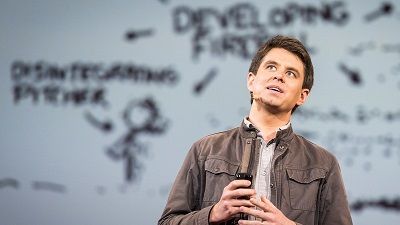
#5 - Randall Munroe: Comics that ask "what if?"
Season 2014 - Episode 92 - Aired 5/8/2014
Web cartoonist Randall Munroe answers simple what-if questions ("what if you hit a baseball moving at the speed of light?") using math, physics, logic and deadpan humor. In this charming talk, a reader’s question about Google's data warehouse leads Munroe down a circuitous path to a hilariously over-detailed answer — in which, shhh, you might actually learn something.
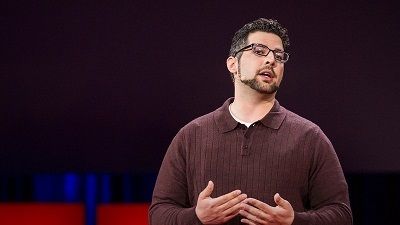
#6 - Zak Ebrahim: I am the son of a terrorist. Here's how I chose peace.
Season 2014 - Episode 168 - Aired 9/8/2014
If you’re raised on dogma and hate, can you choose a different path? Zak Ebrahim was just seven years old when his father helped plan the 1993 World Trade Center bombing. His story is shocking, powerful and, ultimately, inspiring.
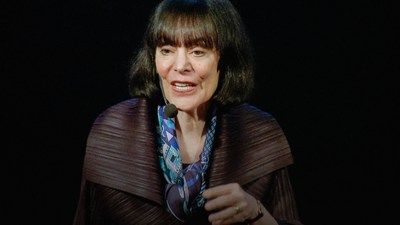
#7 - Carol Dweck: The power of believing that you can improve
Season 2014 - Episode 237 - Aired 12/17/2014
Carol Dweck researches “growth mindset” — the idea that we can grow our brain's capacity to learn and to solve problems. In this talk, she describes two ways to think about a problem that’s slightly too hard for you to solve. Are you not smart enough to solve it … or have you just not solved it yet? A great introduction to this influential field.
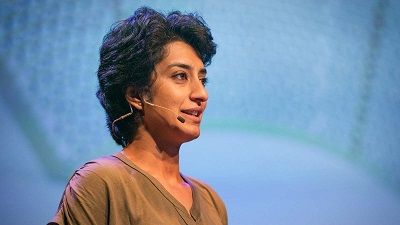
#8 - Aparna Rao: Art that craves your attention
Season 2014 - Episode 26 - Aired 2/7/2014
In this charming talk, artist Aparna Rao shows us her latest work: cool, cartoony sculptures (with neat robotic tricks underneath them) that play with your perception — and crave your attention. Take a few minutes to simply be delighted.
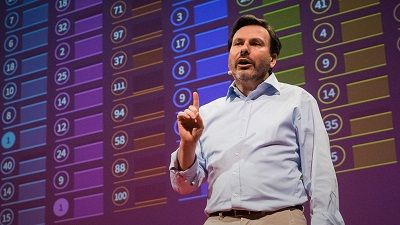
#9 - Simon Anholt: Which country does the most good for the world?
Season 2014 - Episode 131 - Aired 7/2/2014
It's an unexpected side effect of globalization: problems that once would have stayed local—say, a bank lending out too much money—now have consequences worldwide. But still, countries operate independently, as if alone on the planet. Policy advisor Simon Anholt has dreamed up an unusual scale to get governments thinking outwardly: The Good Country Index. In a riveting and funny talk, he answers the question, "Which country does the most good?" The answer may surprise you (especially if you live in the US or China).
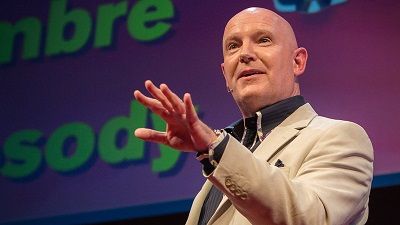
#10 - Julian Treasure: How to speak so that people want to listen
Season 2014 - Episode 128 - Aired 6/27/2014
Have you ever felt like you're talking, but nobody is listening? Here's Julian Treasure to help. In this useful talk, the sound expert demonstrates the how-to's of powerful speaking — from some handy vocal exercises to tips on how to speak with empathy. A talk that might help the world sound more beautiful.

#11 - Robert Full: The secrets of nature's grossest creatures, channeled into robots
Season 2014 - Episode 112 - Aired 6/5/2014
How can robots learn to stabilize on rough terrain, walk upside down, do gymnastic maneuvers in air and run into walls without harming themselves? Robert Full takes a look at the incredible body of the cockroach to show what it can teach robotics engineers.
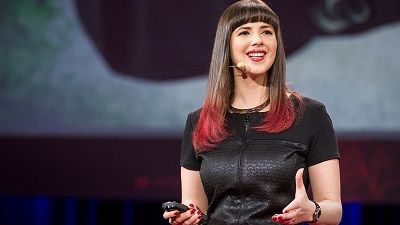
#12 - Keren Elazari: Hackers: the Internet's immune system
Season 2014 - Episode 115 - Aired 6/10/2014
The beauty of hackers, says cybersecurity expert Keren Elazari, is that they force us to evolve and improve. Yes, some hackers are bad guys, but many are working to fight government corruption and advocate for our rights. By exposing vulnerabilities, they push the Internet to become stronger and healthier, wielding their power to create a better world.
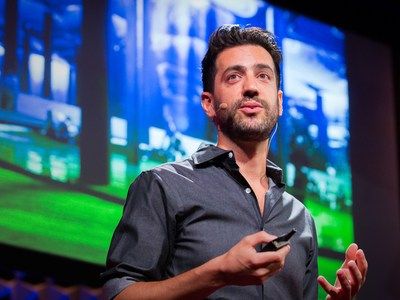
#13 - Dan Barasch: A park underneath the hustle and bustle of New York City
Season 2014 - Episode 169 - Aired 9/10/2014
Dan Barasch and James Ramsey have a crazy plan — to create a park, filled with greenery, underneath New York City. The two are developing the Lowline, an underground greenspace the size of a football field. They're building it in a trolley terminal abandoned in 1948, using technology that harvests sunlight above-ground and directs it down below. It's a park that can thrive, even in winter.
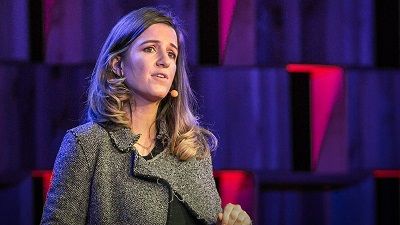
#14 - Aziza Chaouni: How I brought a river, and my city, back to life
Season 2014 - Episode 155 - Aired 8/19/2014
The Fez River winds through the medina of Fez, Morocco—a mazelike medieval city that’s a World Heritage site. Once considered the “soul” of this celebrated city, the river succumbed to sewage and pollution, and in the 1950s was covered over bit by bit until nothing remained. TED Fellow Aziza Chaouni recounts her 20 year effort to restore this river to its former glory, and to transform her city in the process.
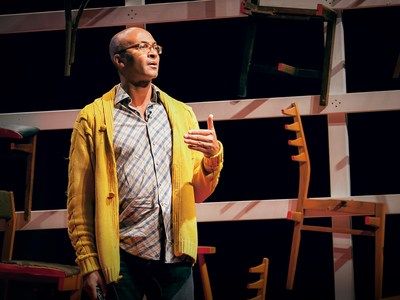
#15 - Colin Grant: How our stories cross over
Season 2014 - Episode 167 - Aired 9/5/2014
Colin Grant has spent a lifetime navigating the emotional landscape between his father’s world and his own. Born in England to Jamaican parents, Grant draws on stories of shared experience within his immigrant community — and reflects on how he found forgiveness for a father who rejected him.
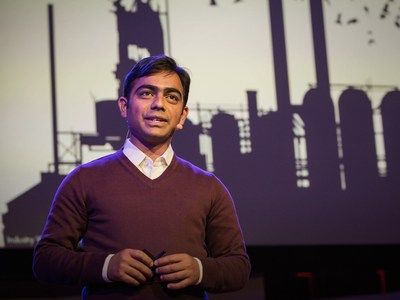
#16 - Shubhendu Sharma: How to grow a tiny forest anywhere
Season 2014 - Episode 166 - Aired 9/4/2014
A forest planted by humans, then left to nature’s own devices, typically takes at least 100 years to mature. But what if we could make the process happen ten times faster? In this short talk, eco-entrepreneur (and TED Fellow) Shubhendu Sharma explains how to create a mini-forest ecosystem anywhere.
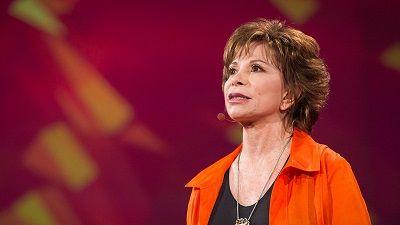
#17 - Isabel Allende: How to live passionately—no matter your age
Season 2014 - Episode 165 - Aired 9/3/2014
Author Isabel Allende is 71. Yes, she has a few wrinkles—but she has incredible perspective too. In this candid talk, meant for viewers of all ages, she talks about her fears as she gets older and shares how she plans to keep on living passionately.
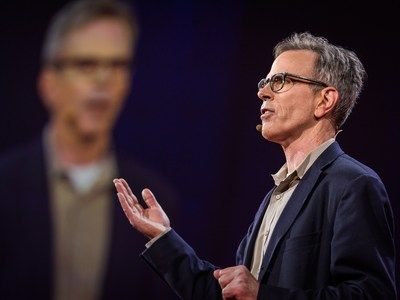
#18 - Jim Holt: Why does the universe exist?
Season 2014 - Episode 164 - Aired 9/2/2014
Why is there something instead of nothing? In other words: Why does the universe exist (and why are we in it)? Philosopher and writer Jim Holt follows this question toward three possible answers. Or four. Or none.
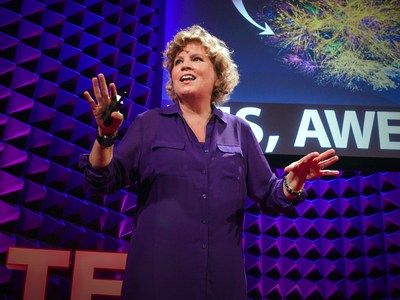
#19 - Jill Shargaa: Please, please, people. Let's put the 'awe' back in 'awesome'
Season 2014 - Episode 163 - Aired 8/29/2014
Which of the following is awesome: your lunch or the Great Pyramid of Giza? Comedian Jill Shargaa sounds a hilarious call for us to save the word "awesome" for things that truly inspire awe.
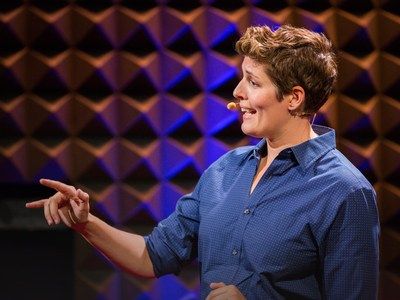
#20 - Sally Kohn: Don't like clickbait? Don't click
Season 2014 - Episode 162 - Aired 8/28/2014
Doesn't it seem like a lot of online news sites have moved beyond reporting the news to openly inciting your outrage (and your page views)? News analyst Sally Kohn suggests — don't engage with news that looks like it just wants to make you mad. Instead, give your precious clicks to the news sites you truly trust.
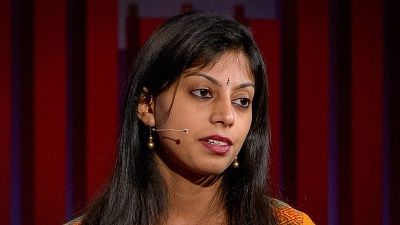
#21 - Meera Vijayann: Find your voice against gender violence
Season 2014 - Episode 161 - Aired 8/27/2014
This talk begins with a personal story of sexual violence that may be difficult to listen to. But that’s the point, says citizen journalist Meera Vijayann: Speaking out on tough, taboo topics is the spark for change. Vijayann uses digital media to speak honestly about her experience of gender violence in her home country of India — and calls on others to speak out too.
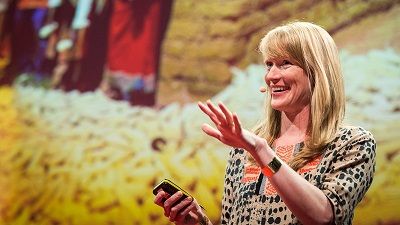
#22 - Rose Goslinga: Crop insurance, an idea worth seeding
Season 2014 - Episode 160 - Aired 8/26/2014
Across sub-Saharan Africa, small farmers are the bedrock of national and regional economies—unless the weather proves unpredictable and their crops fail. The solution is insurance, at a vast, continental scale, and at a very low, affordable cost. Rose Goslinga and the Syngenta Foundation for Sustainable Agriculture pioneered an unconventional way to give farmers whose crops fail early a second chance at a growing season.
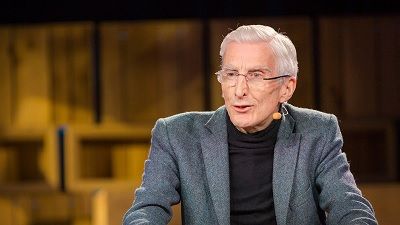
#23 - Martin Rees: Can we prevent the end of the world?
Season 2014 - Episode 159 - Aired 8/25/2014
A post-apocalyptic Earth, emptied of humans, seems like the stuff of science fiction TV and movies. But in this short, surprising talk, Lord Martin Rees asks us to think about our real existential risks — natural and human-made threats that could wipe out humanity. As a concerned member of the human race, he asks: What’s the worst thing that could possibly happen?
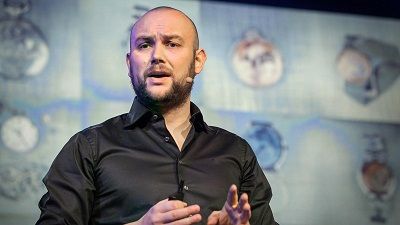
#24 - Ziyah Gafić: Everyday objects, tragic histories
Season 2014 - Episode 158 - Aired 8/22/2014
Ziyah Gafić photographs everyday objects—watches, shoes, glasses. But these images are deceptively simple; the items in them have been exhumed from the mass graves of the Bosnian War. Gafić, a TED Fellow and Sarajevo native, is photographing every item from these graves in order to create a living archive of the identities of those lost.
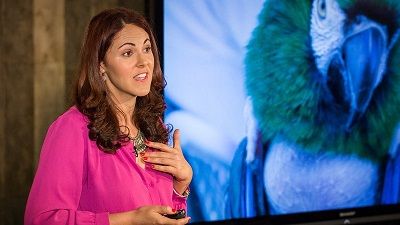
#25 - Laurel Braitman: Depressed dogs, cats with OCD — what animal madness means for us humans
Season 2014 - Episode 157 - Aired 8/21/2014
Behind those funny animal videos, sometimes, are oddly human-like problems. Laurel Braitman studies non-human animals who exhibit signs of mental health issues — from compulsive bears to self-destructive rats to monkeys with unlikely friends. Braitman asks what we as humans can learn from watching animals cope with depression, sadness and other all-too-human problems.